
For the third time in the past 30 years, home run rates are skyrocketing around college baseball. And for the third time in the past 30 years, it likely means that something is happening with the equipment.
In 2023, teams are averaging 1.13 home runs per game, which will set the all-time NCAA record. Even if there is not one home run hit in Omaha, the all-time Division I record of 1.08 home runs per game, set in 1998 at the peak of the "drop 5" era of metal bats, will be smashed.
That leads to the simplest of questions: Why?
When the home run rate soared in the late 1990s, and again in the late 2000s, there were those who said it was because of improved training and player development and the rise of steroid use-but then the equipment changed and the home run rate quickly receded.
The last significant rules-based equipment change came in 2016, when the seams on baseballs were reduced to try to bring home runs back into the game. In 2014, just two players in college baseball topped 20 home runs. Just 10 teams hit at least 50. That year, teams averaged 0.39 home runs per game.
This year, 25 individual players were averaging 0.39 home runs per game or more, and 25 teams have hit 100 or more home runs.
There are a multitude of reasons for this, but we're going to look at the three most frequently mentioned reasons for the home run surge and examine why they make sense.
1. IT'S THE BALL
Many believe that the baseballs used in 2023 are "hotter" than those used in past years. Multiple coaches said that, anecdotally, they believe the baseballs are a key part of the home run surge.
If the drag of the baseball is just a little lower-something that can easily stay within the allowed parameters for a legal baseball-it would lead to extra distance on fly balls.
This story is from the June - July 2023 edition of Baseball America.
Start your 7-day Magzter GOLD free trial to access thousands of curated premium stories, and 9,000+ magazines and newspapers.
Already a subscriber ? Sign In
This story is from the June - July 2023 edition of Baseball America.
Start your 7-day Magzter GOLD free trial to access thousands of curated premium stories, and 9,000+ magazines and newspapers.
Already a subscriber? Sign In
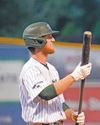
INDEPENDENT/PARTNER LEAGUES PLAYER OF THE YEAR ADAM FOGEL, MISSOULA PADDLEHEADS
Adam Fogel sets the Pioneer League home run record in a season to remember

MINOR LEAGUE EXECUTIVE OF THE YEAR MIKE ABRAMSON, HARTFORD YARD GOATS
Hartford GM Mike Abramson’s tireless dedication has made the Yard Goats one of the best tickets in the minor leagues
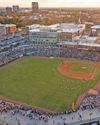
FREITAS AWARD: CLASS A COLUMBIA FIREFLIES
The Columbia Fireflies light the way for a community redevelopment project that benefits an entire city
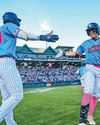
FREITAS AWARD: DOUBLE-A SOMERSET PATRIOTS
From indy ball to affiliated, Somerset continues its tradition of excellence in fruitful partnership with the Yankees
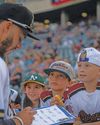
FREITAS AWARD: TRIPLE-A SACRAMENTO RIVER CATS
Key initiatives and facility upgrades make Sacramento a top minor league attraction and also a natural fit as the Athletics’ home in 2025

MINOR LEAGUE MANAGER OFTHEYEAR ZACH VINCEJ, MODESTO
Zach Vincej led Modesto to back-to-back California League championships with teams brimming with top Mariners talent
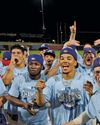
MINOR LEAGUE TEAM OF THE YEAR LAKE COUNTY CAPTAINS
The low-payroll Guardians rely on homegrown talent to fuel MLB success. Midwest League-champion Lake County provides optimism for the future.

MLB COACH OF THE YEAR CHRIS FETTER, TIGERS
Chris Fetter applies all the right touches to a Tigers pitching staff that clawed its way toward the top

MLB EXECUTIVE OF THE YEAR MATT ARNOLD, BREWERS
Continuity is the Brewers’ secret weapon. Matt Arnold made sure the 2024 club met expectations
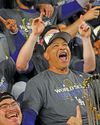
MLB MANAGER OF THE YEAR DAVE ROBERTS, DODGERS
The Dodgers’ Dave Roberts has done things few managers have ever done. Now, he’s finally getting his due.